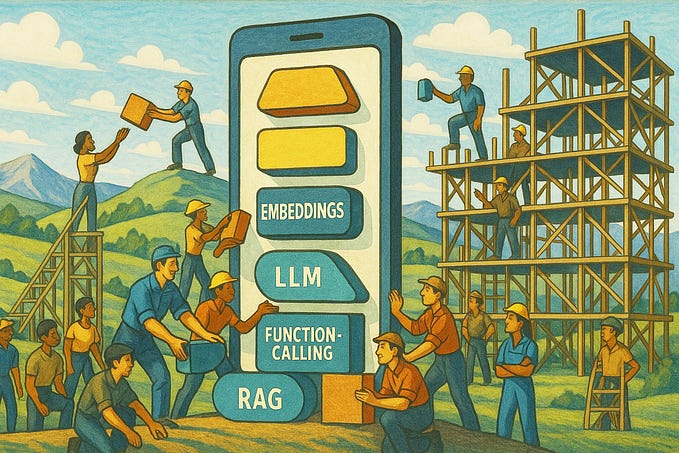What Greek mythology can teach us about the dangers of AI
How the myths of Prometheus and Pandora expose the price of unchecked ambition, hubris, and curiosity in the pursuit of innovation.
Long before the rise of Silicon Valley and neural networks, the ancient Greeks were already grappling with questions about technology, power, and unintended consequences. Their myths, filled with symbolism, offer striking parallels to the dilemmas we face today — especially in regards to artificial intelligence (AI). Two stories in particular, those of Prometheus and Pandora, reflect the dual nature of innovation — and its capacity for promise and chaos.
The price of fire — a Titan’s gift and a god’s revenge
As the story goes, Prometheus, the Titan of foresight, defied Zeus, the king of the Greek gods, by stealing fire from the heavens and giving it to humankind. He wasn’t driven by rebellion, but by empathy. Humans, at that point, were defenseless — subject to nature’s indifference. Fire changed everything. It allowed early humans to cook food, forge tools, build homes, and ultimately, to form civilizations. Fire was more than a flame — it was the first technology.
But to Zeus, this was an unforgivable act. Fire represented divine authority — a power not meant for mortals. By handing it over, Prometheus shifted the cosmic balance. For this, he was chained to a rock, his liver devoured daily by an eagle in a cycle of eternal torment.
In response to Prometheus’s defiance, Zeus devised a subtler punishment for humankind. He crafted Pandora — a beautiful, charming, and, most notably, curious woman — and sent her to Prometheus’s twin brother, Epimetheus, whose name quite literally means “afterthought.” She brought with her a sealed jar (often mischaracterized as a box) containing the afflictions of the world.
Naturally, she opened it. Out came disease, fear, greed, and despair — the only thing left inside was hope. Some believed the hope was a gift, meant to help humans endure. Others saw it as a trick — a lure to keep opening the jar, only to unleash more chaos.

Foresight vs. hindsight — the struggle we inherit
Though this ancient mythos is thousands of years old, it feels more relevant than ever. We innovate like Prometheus — driven by empathy and the thrill of possibility. We accept the gifts it brings like Epimetheus — blind to its consequences. And we open the jar like Pandora — unable to resist the lure of the unknown.
Each new product launch, update, and shiny beta release becomes another jar cracked open, filled with promises we barely question and consequences we rarely anticipate.
Our pursuit of AI isn’t rooted in malice, but in wonder, ego, and hubris — the ancient flaw of overreaching without regard for consequence — without always pausing to consider where that momentum might lead us. Noble intentions do little to prevent collateral damage.
Algorithmic bias, mass surveillance, disinformation, cognitive atrophy, job displacement, dehumanized creativity — none of these are deliberately designed — at least that’s the belief. They leak out, unaccounted for, while we celebrate the brilliance behind the systems that enable them.
By the time we start to grasp the consequences, the damage will be manifesting, embedded in the culture, too vast to contain. We will scramble to regulate after the fact — as if taping the jar shut will undo what’s been released.
In the meantime, we will continue to reward disruption over discernment, handing over the reins of society to AI systems that not only influence who gets hired or heard, but reshape our perception of truth, rewrite cultural norms, and silently redraw the boundaries of power — through processes so complex and unaccountable, even their creators have lost control.
Hope in the machine?
Pandora’s jar held hope. In the context of AI, hope feels like a marketing strategy. Yes, there is potential — medicine, education, discovery. But the fine print is rarely discussed. The trade-offs — privacy, autonomy, human agency — aren’t just bugs. They’re fundamental features of the systems we’re building.
And still, we hope. We hope AI will be different. We hope regulators will get it right. We hope the architects of our digital dependence will suddenly pivot toward virtue. That’s a lot of hope for a world that can’t agree on what truth is.

The crossroads of innovation
We like to think we’ve outgrown the myths — that we’re too advanced for gods, too rational for cautionary tales. But the stories of Prometheus and Pandora persist for a reason. They weren’t warnings against knowledge or progress, but reflections of a deeper truth — that human ambition rarely arrives without unintended cost.
AI is the latest expression of that ambition. Not a single moment of invention, per se, but an accelerating accumulation of choices — made by people, driven by incentives, and deployed at scale before their impact is fully understood. We marvel at what it can do, while struggling to measure what it might undo. This should scare the hell out of us.
If there’s hope left — if that part of the myth still holds — it won’t come from innovation alone. It will come from restraint, from oversight, from the courage to slow down in a culture obsessed with progress. The Greeks didn’t tell these stories to stop innovation. They told them so we wouldn’t forget the cost of charging ahead without looking back.
Don’t miss out! Join my email list and receive the latest content.







